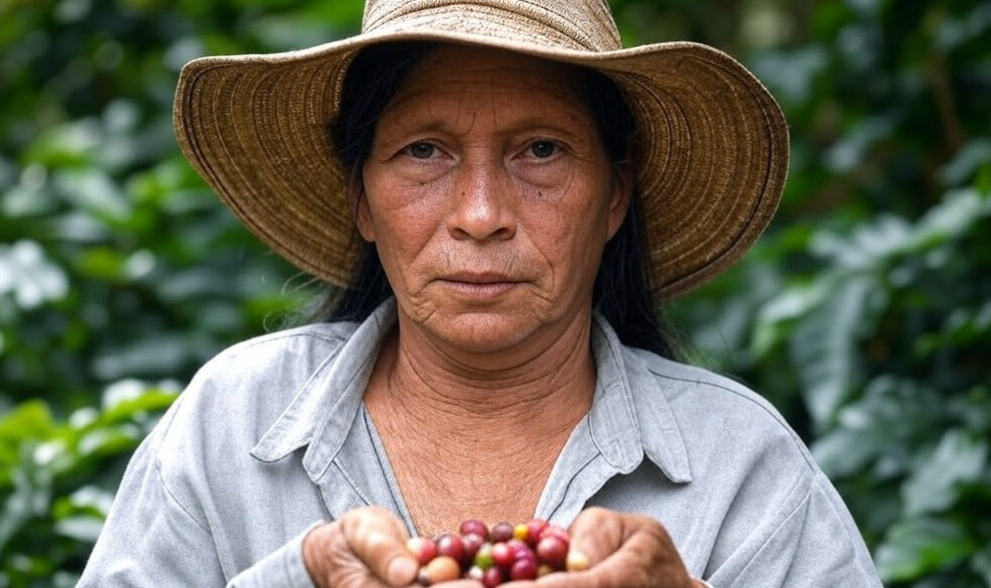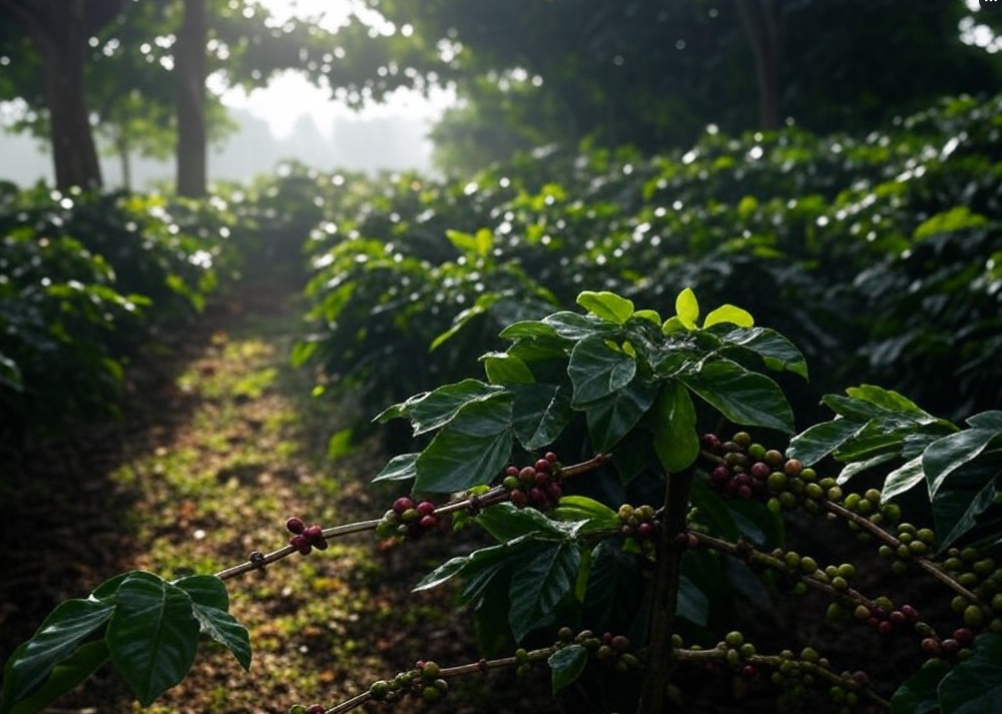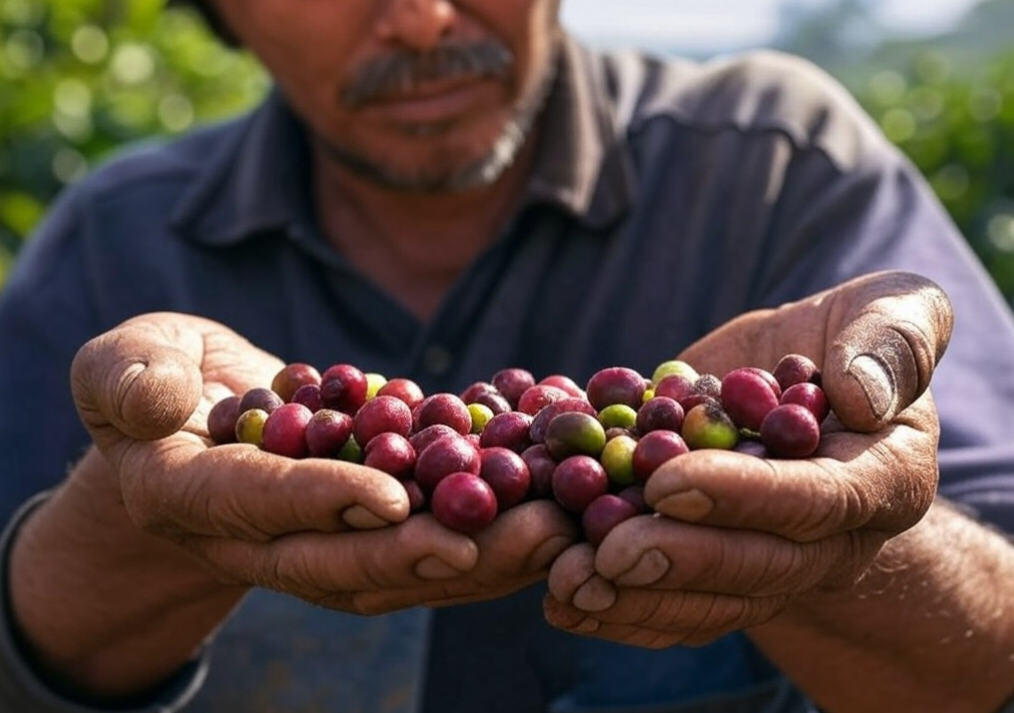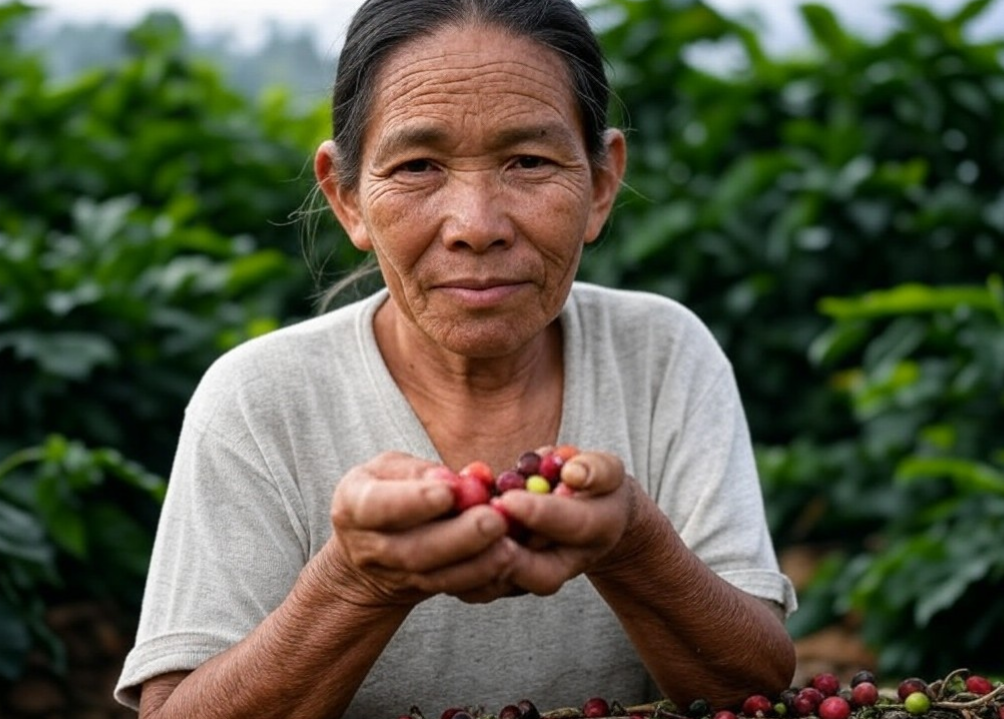
Artisanal Rituals for a Memorable Customer Experience
How can brands create a more balanced and memorable customer experience by blending artisanal product quality with thoughtful everyday rituals that keep people coming back?

What is ethically sourced coffee offers a blend of careful cultivation, fair employee treatment, and environmental consciousness. At its core, ethically sourced coffee involves:
When sustainability matters more than ever, ethically sourced coffee caters to conscientious consumers seeking quality and responsibility in every sip.
Many coffee enthusiasts, like Alex, are navigating the shift towards sustainable and ethically procured coffee. With a passion for a smooth, balanced brew, Alex values coffee that doesn’t compromise flavor for ethics. This evolving search highlights the need for reliable, responsibly produced coffee.
I’m Craig Keel, and I’ve dedicated years to understanding what is ethically sourced coffee. From my childhood fascination with coffee aromas to my pursuit of the perfect-tasting cup, my journey is about finding smooth, ethical flavors. Find the depths of this coffee experience with me in the next sections!
Ethically sourced coffee is more than just a trend; it’s a movement toward a better world. This type of coffee prioritizes fair trade, direct trade, and sustainable practices. Let’s break down why it’s so important.
Fair trade ensures that coffee farmers receive fair wages and work under safe conditions. This means farmers can support their families and invest in their communities. It’s a way of leveling the playing field for those who grow our beloved beans.
Direct trade takes it a step further by fostering direct relationships between coffee buyers and farmers. This approach cuts out the middlemen, ensuring that more money goes directly to the farmers. It also allows buyers to understand the unique challenges and needs of the growers, leading to better support and collaboration.
Ethically sourced coffee also focuses on sustainable practices. This involves using methods that protect the environment and promote biodiversity. For instance, coffee farms might use shade-grown techniques that preserve bird habitats, aligning with the Smithsonian Migratory Bird Center Certification standards.

Choosing coffee from farms that prioritize these methods helps consumers reduce deforestation and protect natural resources.
A significant aspect of ethically sourced coffee is fair compensation. Fair wages ensure that farmers and workers can sustain their livelihoods. This compensation goes hand-in-hand with respecting labor rights, which include safe working conditions and reasonable working hours.
When workers are treated fairly, it leads to higher quality coffee. Happy farmers and workers are more likely to produce beans that are rich in flavor and aroma.
The environment benefits greatly from ethical sourcing. By using fewer pesticides and fertilizers, farmers help reduce pollution and soil degradation. This not only benefits the planet but also results in healthier coffee plants and better-tasting coffee.
Choosing ethically sourced coffee is a simple yet powerful way to make a positive impact. It supports fair wages, protects workers, and fosters environmental sustainability. It’s a choice that benefits everyone, from the farmer to the coffee drinker.
In the next section, we’ll explore how to identify ethically sourced coffee, ensuring that your next cup supports these important values.
Identifying ethically sourced coffee can be straightforward if you know what to look for. Certifications and labels are key indicators that your coffee is produced with care for both people and the planet. Here’s a quick guide to understanding these certifications.
Fair Trade Certified coffee ensures that farmers receive fair prices for their beans. This certification also guarantees safe working conditions and promotes sustainable farming methods. Look for the Fair Trade label on your coffee packaging to support fair compensation and community development.
Third-party certifications are independent endorsements that verify ethical practices. These certifications often focus on environmental sustainability and social responsibility. Examples include:

Direct trade labels signify a direct relationship between coffee roasters and farmers. This connection allows for better transparency and often results in higher quality coffee. While not always a formal certification, companies that practice direct trade often highlight it in their branding, emphasizing the direct support to farmers.
This certification supports shade-grown coffee, which helps preserve bird habitats. Shade-grown methods are less disruptive to the environment and align with sustainable practices. If you’re a bird lover, this certification is one to look for.
When shopping for coffee, check the packaging for these labels and certifications. Many brands proudly display them to highlight their commitment to ethical sourcing. That some companies may have their own internal standards that align with these practices, so researching company history can also be insightful.
By choosing coffee with these certifications, you ensure that your purchase supports ethical practices that benefit farmers, communities, and the environment. It’s a small step that makes a big difference in coffee.
Next, we’ll dive into the benefits of choosing ethically sourced coffee and how it impacts farmers and communities.
Choosing ethically sourced coffee does more than just ensure a great cup of joe. It plays a significant role in supporting farmers and their communities. Here’s how:
Ethically sourced coffee guarantees fair wages for farmers. This means they receive a fair price for their hard work, enabling them to improve their quality of life. Fair Trade and Direct Trade practices are central to ensuring that farmers are not exploited and can sustain their livelihoods.
Eco-friendly farming practices are at the heart of ethical sourcing. Certifications like Organic and Rainforest Alliance ensure that coffee is grown without harmful pesticides and synthetic fertilizers. These methods protect the environment, preserve biodiversity, and promote healthier ecosystems.
When you buy ethically sourced coffee, you’re investing in community development. The premiums from Fair Trade coffee often fund community projects, like building schools or improving healthcare facilities. These projects uplift entire communities, providing education and resources for a better future.

Fair wages are key to ethical coffee sourcing. They help farmers afford basics like food, education, and healthcare. This stability lets farmers invest back into their farms, boosting quality and productivity.
Ethically sourced coffee protects farmers from volatile market prices. Fair Trade agreements often include price floors, which shield farmers from sudden drops in coffee prices. This stability helps farmers plan for the future and reduces the risk of falling into poverty.
Choosing ethically sourced coffee means more than savoring a tasty cup. It positively impacts farmers’ lives, supports eco-friendly practices, and helps develop thriving communities.
Next, we’ll explore some frequently asked questions about ethically sourced coffee.
Ethically sourced coffee is about making choices that respect both people and the planet. This starts with being pesticide-free. Coffee grown without harmful chemicals ensures a safer environment for farmers and healthier ecosystems. Certifications like Organic and Rainforest Alliance play a big role here.
Traceability is another key factor. Ethically sourced coffee can be traced back to its origin, ensuring transparency in its journey from farm to cup. This helps consumers understand where their coffee comes from and assures them of ethical practices.
Labor rights are crucial. Ethically sourced coffee guarantees fair treatment of workers, providing safe working conditions and fair wages. This respect for labor rights is often supported by certifications like Fair Trade, which ensure workers are not exploited.
To determine if coffee is ethical, look for certifications. Labels like Fair Trade Certified, Rainforest Alliance, and Organic are indicators of ethical practices. These certifications are verified by third parties, adding an extra layer of trust.
A company’s history can also provide clues. Companies with a long-standing commitment to ethical practices often share stories of their impact on farmers and communities. They may highlight partnerships with farmers that ensure fair compensation and sustainable practices.
Yes, ethically sourced coffee can be more expensive. The pricing reflects the true cost of ethical and sustainable practices. Fair wages, eco-friendly methods, and community investments add to the cost.
However, this higher price is an investment in quality and sustainability. The market dynamics support farmers, ensuring they receive fair compensation and can continue producing high-quality coffee. This benefits not only the farmers but also consumers, who enjoy a product that aligns with their values.
In the end, choosing ethically sourced coffee means supporting a system that respects people and the planet. It’s a choice that impacts more than just your morning routine.
At Equipoise Coffee, ethically sourced coffee is about caring for the planet and the people who grow the beans. We choose coffee that helps protect the environment and supports farmers. Every cup you drink is a step toward making the world better for both people and nature.

Balanced flavors are at the heart of what we do. Our small-batch roasting process is designed to highlight the unique character of each bean, resulting in a smooth, rich, and perfectly harmonized cup. Whether you’re savoring bright, fruity undertones or rich, chocolatey depths, you’ll experience the hallmark balance and clarity that defines Equipoise Coffee.
Choosing ethically sourced coffee with us means you’re supporting fair compensation, sustainable practices, and the well-being of coffee-growing communities. Every cup you enjoy contributes to a system that values transparency, labor rights, and environmental care.
We invite you to explore our range of ethically sourced coffees and experience the perfect balance for yourself. Join our community of coffee lovers who are passionate about quality and ethical practices.

How can brands create a more balanced and memorable customer experience by blending artisanal product quality with thoughtful everyday rituals that keep people coming back?

Independent coffee shops have always been about more than caffeine—they’re hubs of creativity, connection, and care. As café culture continues to evolve, new trends are

Introduction Independent cafes win when they feel like the neighborhood’s living room and operate with the discipline of a great kitchen. Below is a quick

Discover how top specialty coffee brands create lasting loyalty through storytelling, sourcing, and community connection. Real tips from 6 industry experts.

Discover the ultimate showdown between two beloved coffee brewing methods: the French press and Chemex. Explore how each technique caters to distinct palates, with the French press delivering bold flavors and the Chemex presenting a bright, clean taste.

Unlock the secrets to brewing the perfect cup of coffee with our comprehensive guide on using a coffee scale. Discover how precise measurements enhance flavor and consistency while eliminating bitterness.

Discover how water temperature plays a vital role in brewing the perfect cup of coffee. This article delves into the ideal temperature range of 195°F to 205°F for optimal flavor extraction, enhancing the enjoyment of high-quality beans.

Discover the world of curated specialty coffee bundles, perfect for enthusiasts seeking quality and craftsmanship. This article explores the benefits of ethically sourced, small-batch beans from brands like Equipoise Coffee, offering diverse flavor profiles that elevate your brewing experience.

Discover the art of manual brewing to elevate your coffee experience! This article explores various techniques like pour-over, French press, and AeroPress, revealing how they enhance flavor and your connection to every cup.